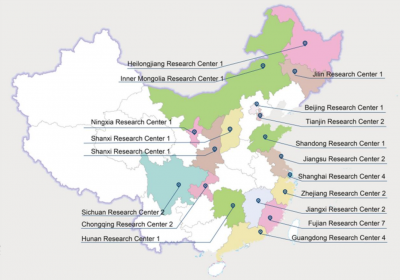BREAKING: New research reveals alarming health risks for firefighters who battled the destructive fires in the Los Angeles area in January 2025. A study conducted by the University of Arizona Mel and Enid Zuckerman College of Public Health found significant physiological changes in firefighters that could elevate their risk of diseases, including cancer.
The fires, which consumed more than 23,000 acres and forced over 100,000 people to evacuate, ignited in the wildland-urban interface, leading to devastating urban conflagrations. Researchers analyzed blood samples from 42 firefighters enrolled in the Fire Fighter Cancer Cohort Study, collected before and after their response to these catastrophic blazes.
The findings, published in the Journal of Occupational and Environmental Medicine, revealed an alarming 60 changes in the firefighters’ serum proteome—a group of blood proteins crucial for various bodily systems, including immune response and inflammation. Changes linked to cancer growth, metabolic shifts, oxidative stress, and cell barrier formation were notably identified.
Melissa Furlong, the study’s first author and assistant professor at the Zuckerman College of Public Health, emphasized the urgency of these findings.
“Our research identified changes in proteins that were concerning for lots of different reasons. They indicated a broad suite of possible health effects from exposure to these large urban conflagration fires,”
said Furlong.
Senior author Dr. Jeff Burgess, a longstanding collaborator with firefighters on health and safety research, noted the implications of these findings for the firefighting community. “This publication comes from collaborative research with the fire service, where they have worked with us during all parts of the study,” he stated.
The study aims to offer answers to firefighters’ concerns about their exposure to hazardous conditions and the potential for future illnesses. Furlong and Burgess are already planning long-term follow-up studies to pinpoint specific proteins that may indicate health risks over time.
“Our goal is to identify proteins that can be targeted for intervention or biomarkers that can aid in disease prevention,” Furlong added.
The research highlights the urgent need for ongoing investigation into the long-term health impacts of firefighting, particularly in environments facing increasing wildfire threats. As climate change accelerates the frequency and intensity of such fires, the health of those on the front lines becomes a critical public health issue.
As this study gains traction, it is expected to inform future health policies and preventive measures for firefighters, aiming to reduce their elevated cancer risk.
For more details, refer to the research by Melissa Furlong et al. in the Journal of Occupational and Environmental Medicine.







